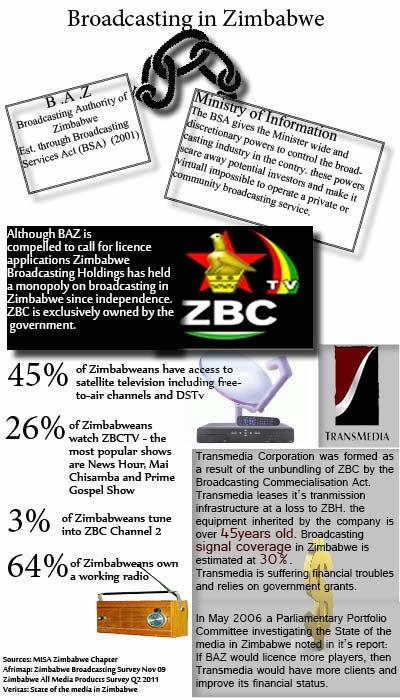In an analysis titled Debating Zimbabwean-ness in Diasporic Internet forums, researchers Wendy Williams and Winston Mano explore the way in which national identity and citizenship were debated in an online discussion forum on the tabloid news site NewZimbabwe. The analysis focuses on an online discussion of Makosi Musambasi, who participated in Big Brother UK 2005, providing an interesting insight into how we as Zimbabweans construct our collective identity.
Like many Zimbabweans of my generation and more in the succeeding ones, all I wanted to do after high school was leave the country. Yet it was when I left and had experienced otherness in another country I wanted nothing more than to come back. There is nothing that makes you feel more Zimbabwean than leaving Zimbabwe. In my time away, I spent hours on the Internet looking for anything and everything I could find that might possibly bring home to me. Including other Zimbabweans and time and time again I was disappointed. The group that was supposed to create a soft landing for fellow émigrés was mired in infighting and political struggles. Other Zimbabweans would get in touch only when they needed something. I remember one African Union like gathering that was so overwhelmed by Nigerians that there was nowhere for them to sit. And even though there were several thousand Zimbabweans living in that city, our table for ten could hardly find three people. This is not to imply that that we are an exception among nationalities, but it is peculiar that even Zimbabweans themselves have observed that we are the least united of all the nationalities. There is not a single person living in or who has returned from the Diaspora who cannot recount at least one story of Zimbabweans being taken advantage of, excluded and sometimes even oppressed by fellow countrymen. An example is the news story of the man who was accused of selling the names of undocumented Zimbabweans to the Home Office in the UK.
The report observes that the Internet has provided a means for Zimbabweans both in and out of the country to set up a vibrant media culture, therefore a space for a more robust and inclusive debate regarding Zimbabwean-ness. It also notes that ‘[t]he discussion has shown how diasporic Zimbabwean media culture incorporated and subverted mainstream representations on the British media. The intensity and scope of the debates around the participation of a Zimbabwean nurse, Makosi Musambasi…are a good example of the mobilising aspect of national identity on the Internet.’
Disappointingly, those posting comments on the forum reject Makosi’s authenticity as a Zimbabwean because her parents were not born in the country. Reflecting on this, Williams and Mano write:
Although Makosi had lived her whole life in Zimbabwe, forum participants excluded her from the nation in similar ways as the Zimbabwean Government sought to disenfranchise Zimbabweans of Malawian, Zambian and Mozambican descent from their citizenship. In this way highly exclusionary notions of the nation were thus reproduced on the New Zimbabwe forum.
I can see why the state chooses to broadcast propaganda, it works. And ironically it has worked on the very people who by virtue of their location outside Zimbabwe are economically if not politically opposed to the party’s authoritarian grip on everything Zimbabwean, including identity. But regardless of where they live, their political affiliation and even skin colour, for many people being Zimbabwean is no longer defined in terms of what country you were born and grew up in or common experiences. As Zimbabweans we define our Zimbabwean-ness in terms of what it is not, rather than in terms of what it is. We are just as guilty as ZANU-PF of perpetuating a nationalistic misconstruction of our common identity. Individually, we divide and create an ‘other’ based on what is perceived as mis-culture or acculturaltion. This becomes personally unacceptable, and instead of uniting and embracing the diversity within our culture we reject each other for petty small-minded reasons. It’s no wonder then that there are people in Matebeleland who believe in creating a separate Ndebele state, or that Zimbabweans of European descent are first white then Zimbabwean. In fact depending on where and how we grew up, we are all Zimbabwean second.
I am disappointed by Zimbabweans. Even as we create conversations and actions about rebuilding Zimbabwe, the same breath is used to exclude other equally capable Zimbabweans, be they ZANU-PF or MDC-x members, Diasporans, white farmers, or Angolan/Malawian/Mozambican/Zambian-Zimbabweans. Surely this is a process that will require every Zimbabwean, regardless of location, language preference, political affiliation and most especially ethnic origin.










